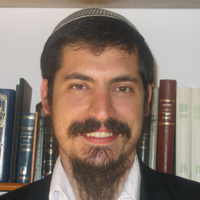Beit Midrash
- Torah Portion and Tanach
- D'varim
- Nitzavim
"God will remove the barriers from your hearts and from your descendants' hearts, so that you will love the Lord your God with all your heart and soul... ." (Deut. 30:6)
Why does the verse mention both 'your hearts' and 'your descendants' hearts'? Do the parents and children have different hearts?
In fact, their hearts are different. Each generation has its own intellectual, emotional, and spiritual yearnings. Each generation has its own hurdles and barriers to be overcome. While the fundamental content of the Torah does not change — it is still the same divine Torah from Sinai — its style and exposition must meet the needs of the day.
The prophet Elijah, harbinger of the redemption, will know how to reach out to each generation in its own language. He will succeed in bringing them together, and thus fulfill his mission to "restore the heart of fathers to the children, and the heart of the children to their fathers" (Malachi 3:24).
Torah for Our Time
Rav Kook was profoundly disturbed by the widespread abandonment of religious observance by the young people of his time. He frequently pleaded for the creation of a renascent literature to reach out to the younger generation. In a letter from 1913, for example, he wrote:
"We must translate our entire sacred treasury according to the contemporary style of writing. Almost the entire body of Jewish knowledge and sentiments must be made accessible to the people of our time."
In the days of the return from Babylonian exile, Ezra switched the script of the Torah from the paleo-Hebrew characters to the letters that we use today, the more aesthetically pleasing Assyrian script (Sanhedrin 21b). One reason for doing so was in order to help his generation appreciate and connect to the Torah. We live in a similar age, when the exiled Jews returning to their homeland are often detached from their spiritual heritage. Ezra's initiative is an apt metaphor for the current need to present the Torah in a language and style suitable for our time, while preserving its inner content.
Rabbi Chanan Morrison of Mitzpeh Yericho runs ravkooktorah.org, a website dedicated to presenting the Torah commentary of Rabbi Avraham Yitzchak HaCohen Kook, first Chief Rabbi of Eretz Yisrael, to the English-speaking community.
(Gold from the Land of Israel pp. 342-343. Adapted from Otzarot HaRe'iyah vol. II, p. 369; Igrot HaRe'iyah vol. II, p. 226)

Parasha Summary - Nitzavim
An Overview of the Torah Portion
Rabbi Stewart Weiss

Two Creations
from Aroch Siach, p. 8-9
Rabbi Shaul Yisraeli zt"l | Elul 24 5781

“It is Not in the Heaven”
Parashat Nitzavim
Rabbi Yossef Carmel | 25 Elul 5764

























